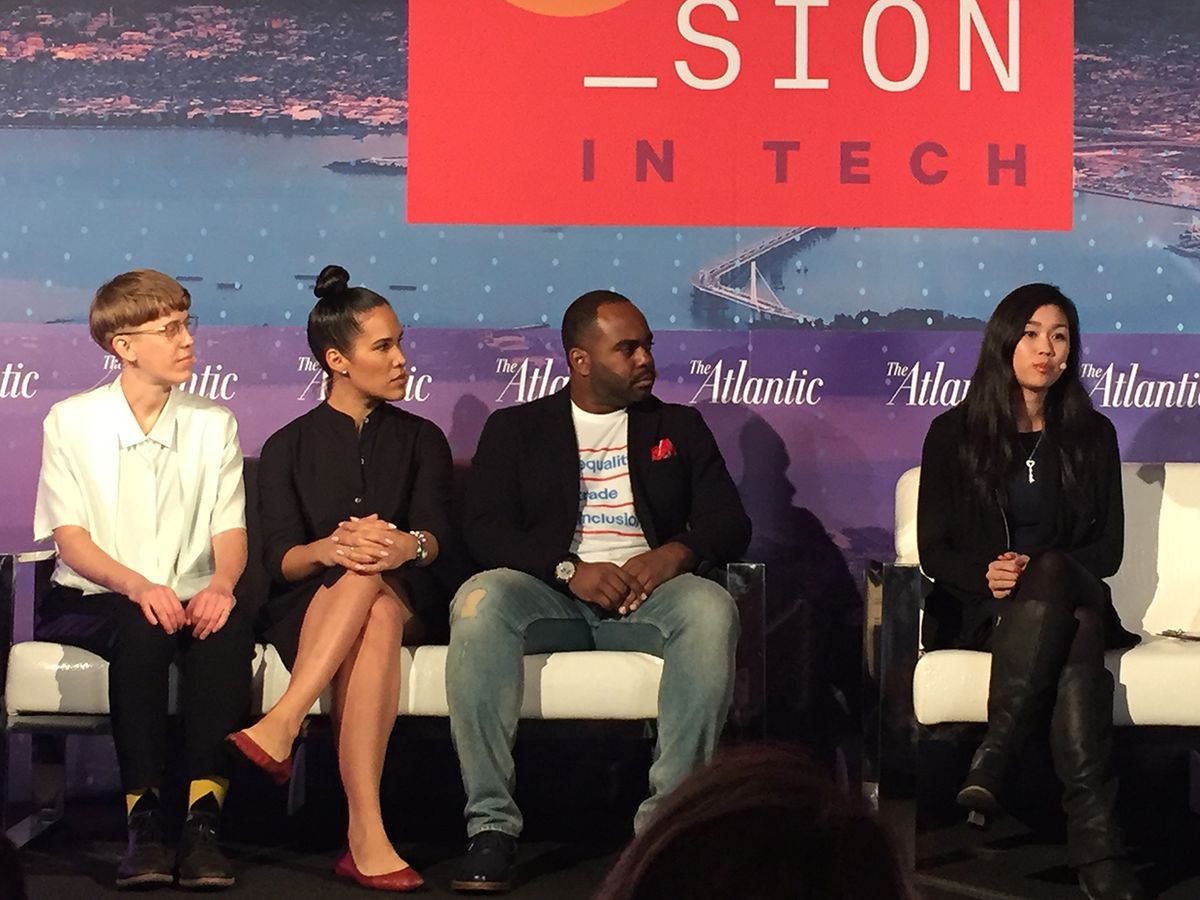Four years ago, then-Pinterest engineer Tracy Chou lit up Silicon Valley with her efforts to get companies to report numbers reflecting diversity in the workforce. She started with a post on Medium and collected data on nearly 300 companies. The publicity her efforts generated likely started the ball rolling, prompting big tech companies, Google and Facebook among others, to release diversity statistics.
“I felt it was hypocritical for an industry that is so data-driven to have no data around diversity,” said Chou, speaking on a panel at The Atlantic’s Inclusion in Tech summit last week.
These days, a number of companies are releasing diversity statistics annually. But that’s not helping as much as Chou expected.
“It helps a little,” she says, “but there’s some skepticism around the numbers, [a suspicion] that companies are using them as a P.R. move, that there isn’t full transparency. There is no data on retention, for example, only a superficial layer of data.”
Mimi Fox Melton, director of Code2040, also speaking at Inclusion in Tech, pointed out that Apple includes its Genius Bar employees when they count tech employees, even though there is no path for these workers to move into Apple’s engineering core. “They are retail workers,” she said, “so many are people of color. Apple’s diversity numbers are inflated.”
“We need to have data to create change,” said Tash Wilder, a workforce consultant at Paradigm. “Organizations will say it’s a pipeline problem, but if we look at it, we can say, ‘No sorry, it’s actually that your interview process is biased, it’s not a pipeline problem.’ We also need data about how the people in your organization are doing.” For example, “If you are a transperson are you being misgendered? If you are nonbinary do you have a restroom to use?”
Companies need to think about what kinds of data they are collecting—simply counting people isn’t enough, pointed out Wilder. That should “definitely include attrition rates and some measure of feelings of belonging.”
Getting companies to do better on data collection and reporting is going to be tough, the panelists agreed.
“If you share data,” you risk getting “lambasted on social media,” said Melton, “Because it’s all s&#%, nobody is doing well” on improving diversity.</p> <p>And, she pointed out, “those in power do not want to give it up, and we are telling them we want to change the systems that made them rich.”</p> <p>“People in technology want to believe that it’s meritocratic,” Chou, who is now Founding Advisor for <a href="https://projectinclude.org/">Project Include</a>. “The myth of the meritocracy is insidious, people want to believe that the best will rise to the top. People who are successful want to believe that they have earned their success, and the people not [at the top] don’t deserve it.”</p>
Tekla S. Perry is a former IEEE Spectrum editor. Based in Palo Alto, Calif., she's been covering the people, companies, and technology that make Silicon Valley a special place for more than 40 years. An IEEE member, she holds a bachelor's degree in journalism from Michigan State University.



